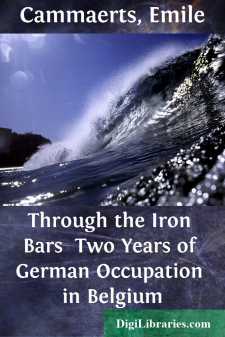Categories
- Antiques & Collectibles 13
- Architecture 36
- Art 48
- Bibles 22
- Biography & Autobiography 813
- Body, Mind & Spirit 142
- Business & Economics 28
- Children's Books 17
- Children's Fiction 14
- Computers 4
- Cooking 94
- Crafts & Hobbies 4
- Drama 346
- Education 46
- Family & Relationships 57
- Fiction 11829
- Games 19
- Gardening 17
- Health & Fitness 34
- History 1377
- House & Home 1
- Humor 147
- Juvenile Fiction 1873
- Juvenile Nonfiction 202
- Language Arts & Disciplines 88
- Law 16
- Literary Collections 686
- Literary Criticism 179
- Mathematics 13
- Medical 41
- Music 40
- Nature 179
- Non-Classifiable 1768
- Performing Arts 7
- Periodicals 1453
- Philosophy 64
- Photography 2
- Poetry 896
- Political Science 203
- Psychology 42
- Reference 154
- Religion 513
- Science 126
- Self-Help 84
- Social Science 81
- Sports & Recreation 34
- Study Aids 3
- Technology & Engineering 59
- Transportation 23
- Travel 463
- True Crime 29
Emile Cammaerts
Émile Cammaerts (1878–1953) was a Belgian poet, playwright, and author who wrote primarily in French. He is best known for his poetry and his works on religious and philosophical themes, often exploring Christian faith and European identity. Cammaerts also wrote several biographies, including "The Laughing Prophet" about G.K. Chesterton, with whom he shared a deep intellectual friendship. His other notable works include "Belgium: From the Roman Invasion to the Present Day" and "The Poetry of Nonsense."
Author's Books:
Sort by:
by:
Emile Cammaerts
I.THE PRISON GATES.The English-speaking public is generally well informed concerning the part played in the war by the Belgian troops. The resistance of our small field army at Liège, before Antwerp, and on the Yser has been praised and is still being praised wherever the tale runs. This is easy enough to understand. The fact that those 100,000 men should have been able to hold so long in check the...
more...
by:
Emile Cammaerts
INTRODUCTION The history of the Belgian nation is little known in England. This ignorance, or rather this neglect, may seem strange if we consider the frequent relations which existed between the two countries from the early Middle Ages. It is, however, easy enough to explain, and even to justify. The general idea has been for a long time that the existence of Belgium, as a nation, dated from its...
more...



